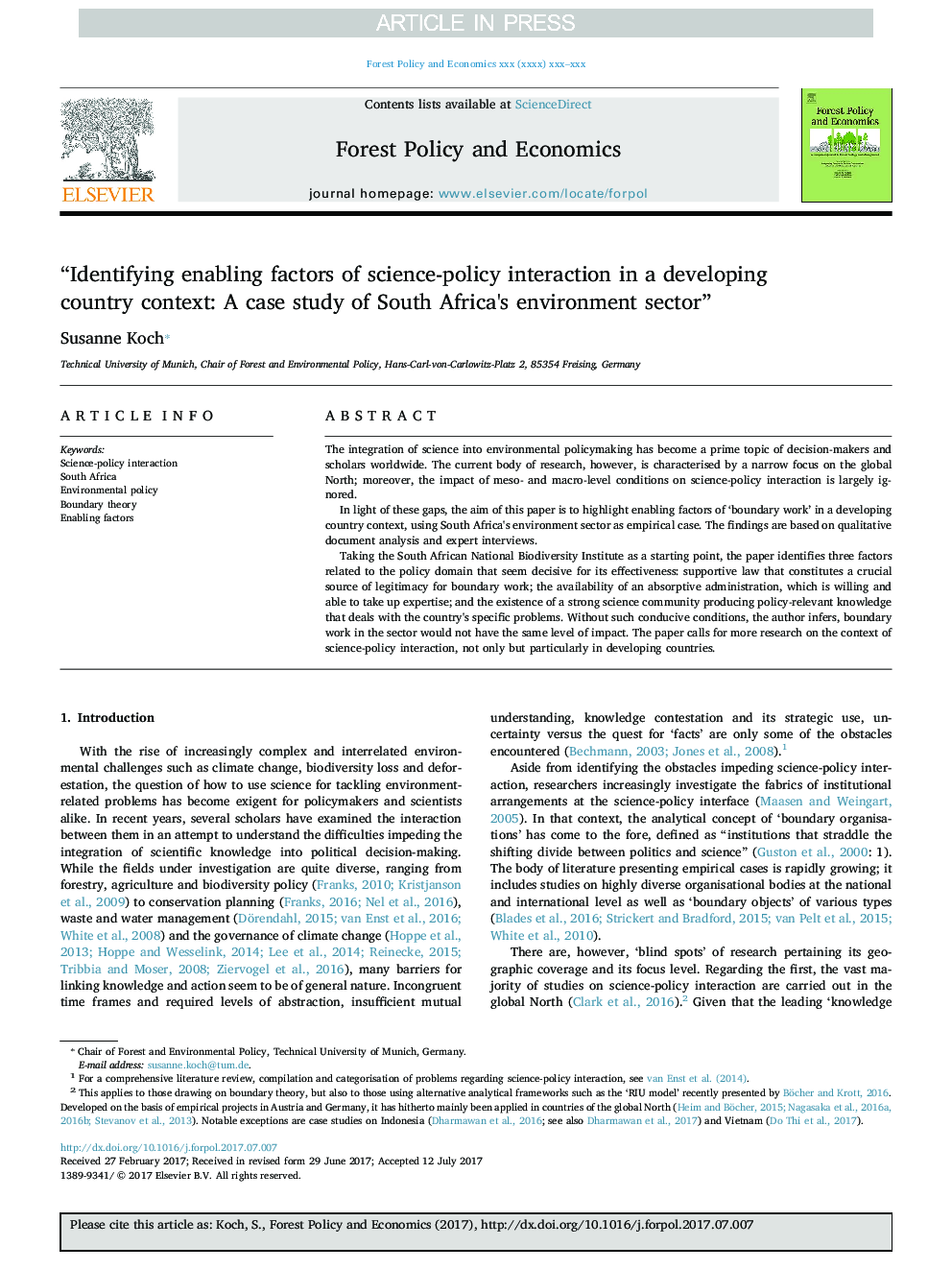| Article ID | Journal | Published Year | Pages | File Type |
|---|---|---|---|---|
| 6544756 | Forest Policy and Economics | 2018 | 10 Pages |
Abstract
Taking the South African National Biodiversity Institute as a starting point, the paper identifies three factors related to the policy domain that seem decisive for its effectiveness: supportive law that constitutes a crucial source of legitimacy for boundary work; the availability of an absorptive administration, which is willing and able to take up expertise; and the existence of a strong science community producing policy-relevant knowledge that deals with the country's specific problems. Without such conducive conditions, the author infers, boundary work in the sector would not have the same level of impact. The paper calls for more research on the context of science-policy interaction, not only but particularly in developing countries.
Related Topics
Life Sciences
Agricultural and Biological Sciences
Forestry
Authors
Susanne Koch,
